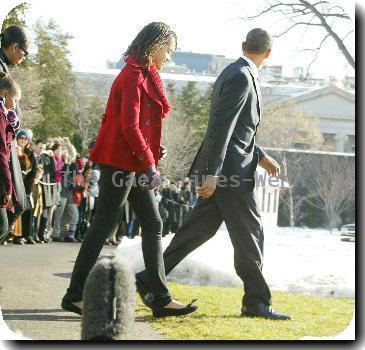Democratic Sen. Evan Bayh of Indiana says he won’t seek a third term in Congress
By Ken Kusmer, APMonday, February 15, 2010
Dem. Sen. Evan Bayh says he won’t seek 3rd term
INDIANAPOLIS — Democratic Sen. Evan Bayh says he will not run for a third term in Congress.
Bayh said at a news conference in Indianapolis on Monday that he believed he would have been re-elected despite “the current challenging environment” in Congress.
He attributed his decision to the bitter partisan divides that have dominated Congress in recent years, though he praised his colleagues as hard workers devoted to public service.
Bayh says it is time for him to “contribute to society in another way,” either by creating jobs with a business, leading a college or university, or running a charity.
His decision leaves Democrats at risk of losing the Senate seat in the November election after Bayh had raised $13 million for his campaign.
THIS IS A BREAKING NEWS UPDATE. Check back soon for further information. AP’s earlier story is below.
WASHINGTON (AP) — Sen. Evan Bayh, a centrist Democrat from Indiana, is ready to announce he won’t seek a third term in Congress, giving Republicans a chance to pick up a Senate seat.
“To put it in the words most Hoosiers can understand: I love working for the people of Indiana, I love helping our citizens make the most of their lives, but I do not love Congress,” Bayh said in comments prepared for an announcement later Monday in Indianapolis. His statement was obtained by The Associated Press from a Democratic official who declined to be named publicly.
The departure of Bayh, who was on Barack Obama’s short list of vice presidential candidate prospects in 2008, continues a recent exodus from Congress among both Democrats and Republicans, including veteran Democrats Christopher Dodd of Connecticut and Patrick Kennedy of Rhode Island.
The announcements have sprung up in rapid-fire fashion amid polls showing a rising anti-incumbent fervor and voter anger over Washington partisanship, high unemployment, federal deficits and lucrative banking industry bonuses.
In his statement, Bayh, who won the seat to the Senate in 1998, seemed to attribute his decision to the bitter partisan divides that have dominated Congress in recent years, though he praised his colleagues as hard workers devoting to serving the public.
“My decision should not be interpreted for more than it is, a very difficult, deeply personal one,” Bayh’s statement said. “I am an executive at heart. I value my independence. I am not motivated by strident partisanship or ideology.”
Bayh said he believed he would have been re-elected this November, despite “the current challenging environment.” He said it was time for him to “contribute to society in another way,” either by creating jobs with a business, leading a college or university, or running a charity.
His retirement from a Senate seat from Republican-leaning Indiana also adds to the struggle Democrats will face this fall to prevent an erosion of the 59 votes they have in the chamber.
“After all these years, my passion for service to my fellow citizens is undiminished, but my desire to do so by serving in Congress has waned,” Bayh said in a statement he planned to read at the news conference.
The plans by the 54-year-old, two-term senator were confirmed by three Democratic officials who discussed his announcement on grounds of anonymity because it was still pending.
Bayh informed Senate Majority Leader Harry Reid, D-Nev., of his plans in a telephone conversation Monday morning, according to one Democrat.
The party will have to scramble to find a replacement candidate for Bayh’s seat. Friday is the filing deadline for the May primary, although the party would have until June 30 to select a replacement candidate.
Bayh’s name was among a handful of well-known Democrats prominently mentioned as possible vice presidential candidates in both Sen. John Kerry’s 2004 run for the presidency and Obama’s successful run for the White House. He was believed to have been on Obama’s short list. Obama settled on then-Sen. Joseph Biden of Delaware.
Less than two weeks ago, former Indiana Sen. Dan Coats, a Republican, announced that he would try to reclaim his old seat from Bayh. The move by Coats came as the GOP was still celebrating Republican Scott Brown’s January upset to take Edward Kennedy’s former seat in Massachusetts.
North Dakota’s Democratic Sen. Byron Dorgan also is retiring, and his party doesn’t have anyone to challenge the Republican, Gov. John Hoeven. Democrats also failed to recruit their top candidate in Delaware. Biden’s son, Beau Biden, eschewed a run against Republican Mike Castle.
Bayh is serving his second six-year term in the Senate, and is a centrist Democrat from a Republican-leaning state.
Bayh served two terms as Indiana’s governor before winning the first of his two Senate terms in 1998. He had until recent weeks been regarded as a near certainty for re-election, having raised nearly $13 million for his campaign and facing little-known Republican opposition until national Republicans recruited Coats to enter the race.
Bayh’s name was already well known when he first ran for political office in 1986, winning the race for Indiana secretary of state that year. His father, Birch, won the first of three terms in the U.S. Senate in 1962 and was an unabashed Great Society liberal.
The younger Bayh ran for governor in 1988 on a platform of fiscal responsibility, reducing what he considered to be a bloated government bureaucracy and opposing tax increases.
Bayh served two terms as Indiana’s governor before winning the first of his two Senate terms in 1998.
Associated Press writer Tom Davies in Indianapolis contributed to this story.
Tags: Barack Obama, Campaigns, Edward Kennedy, Evan bayh, Geography, Indiana, Indianapolis, John Kerry, North America, Personnel, Political Organizations, Political Parties, United States

